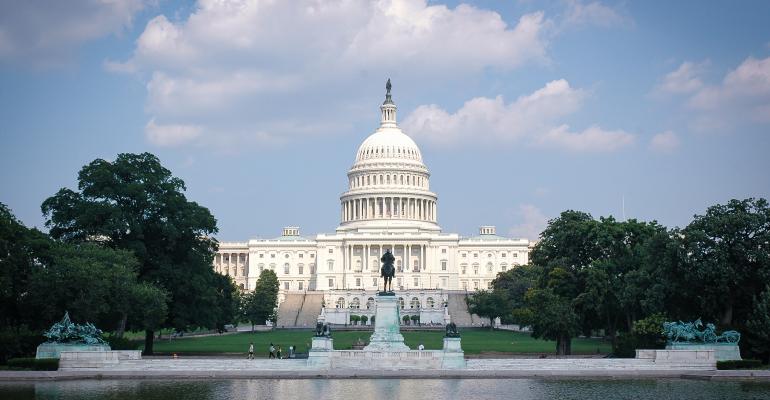By Nick Georgis
Today, drama in Washington is consuming time and energy for advisors and their clients. While it’s tempting to tune out the political noise, it is as important as ever for independent advisors to tune in and engage with lawmakers. As the new administration promises to shake up the regulatory landscape, there is a tremendous opportunity for independent advisors to help shape the changes that will impact the industry’s future, their businesses and clients’ interests.
While advocating for the financial advice industry is a year-round priority, each spring we visit Capitol Hill as part of the Investment Adviser Association’s Lobbying Day. This year, the Schwab team, along with four of our advisor clients, met with representatives and their staffs from both sides of the aisle to discuss the value of the independent model, and issues we want them to understand as they make decisions that will affect the industry for years to come. It was an interesting time to be in Washington, to say the least—several headline-grabbing hearings were taking place in the Capitol as we met with lawmakers. Still, a few issues dominated our conversations.
- The Department of Labor’s fiduciary rule: The rule is now in effect, but its future remains uncertain. Adding another layer of ambiguity, the SEC also stepped into the fiduciary fray, with its invitation for public comment on standards for investment advice. More than half of the independent advisors in Schwab’s Fall 2016 Investment Advisor Outlook Study agreed that regulation of fiduciary standards can strengthen the RIA industry. That’s not surprising, as RIAs have always put the interest of their clients first. The independent advice industry is broadly ready for the DOL fiduciary rule. But that doesn’t mean there aren’t improvements that could be made to the rule or changes that advisors would like to see before the rest of the rule goes into effect in January. We will continue to educate lawmakers and regulators about the need to protect investors and preserve access to quality investment advice without overburdening advisors with compliance challenges.
- Frequency of advisor examinations: The average RIA is examined once every 11 years. That’s not often enough. Responding to an exam is a major undertaking for any firm, yet advisors understand that the process is critical to the strength of the industry. Our latest Investment Advisor Outlook Study, which includes the opinions of more than 900 independent advisors, found that they overwhelmingly favor proposed SEC exam priorities, including cybersecurity, elder-investor protection, never-before-examined advisors, anti–money laundering and automated investment advice. Consistent, thorough exams will support the industry’s growth and help independent advisors continue to serve investors’ best interests.
- Cybersecurity: One of the top priorities for SEC examiners this year is cybersecurity, and independent advisors recognize it as one of the most critical business and investor-protection issues of our time. The industry is actively getting its arms around management of cyberthreats, investing in staff training and technology to safeguard data. Regulators are learning how to oversee this significant issue, and unfortunately coordination among bodies with overlapping oversight is falling by the wayside. Meanwhile, advisors are responding to duplicative requests and educating regulators about practices that should be commonly understood. We urge regulators to take steps to coordinate cybersecurity oversight to better protect all investors from cyberattacks.
Independent advisors understand the need for smart regulation, and they are actively making the investments needed to respond to today’s regulatory environment and to protect their clients’ best interests. Still, RIA firms feel the burden of poorly developed, poorly implemented, or duplicative regulation. As the landscape becomes more competitive and efficiency becomes increasingly critical to the growth and sustainability of RIA firms, we encourage advisors to avoid a purely reactive approach to regulation and to consider advocacy as an integral part of their business strategies. Advisors can take steps to shape the dialogue and the outcomes by staying up to speed on the key issues, emailing or calling representatives, attending local town hall meetings, or visiting representatives in their offices. We have nothing to lose and much to gain by making our voices heard.
Nick Georgis is a senior vice president at Schwab Advisor Services.





